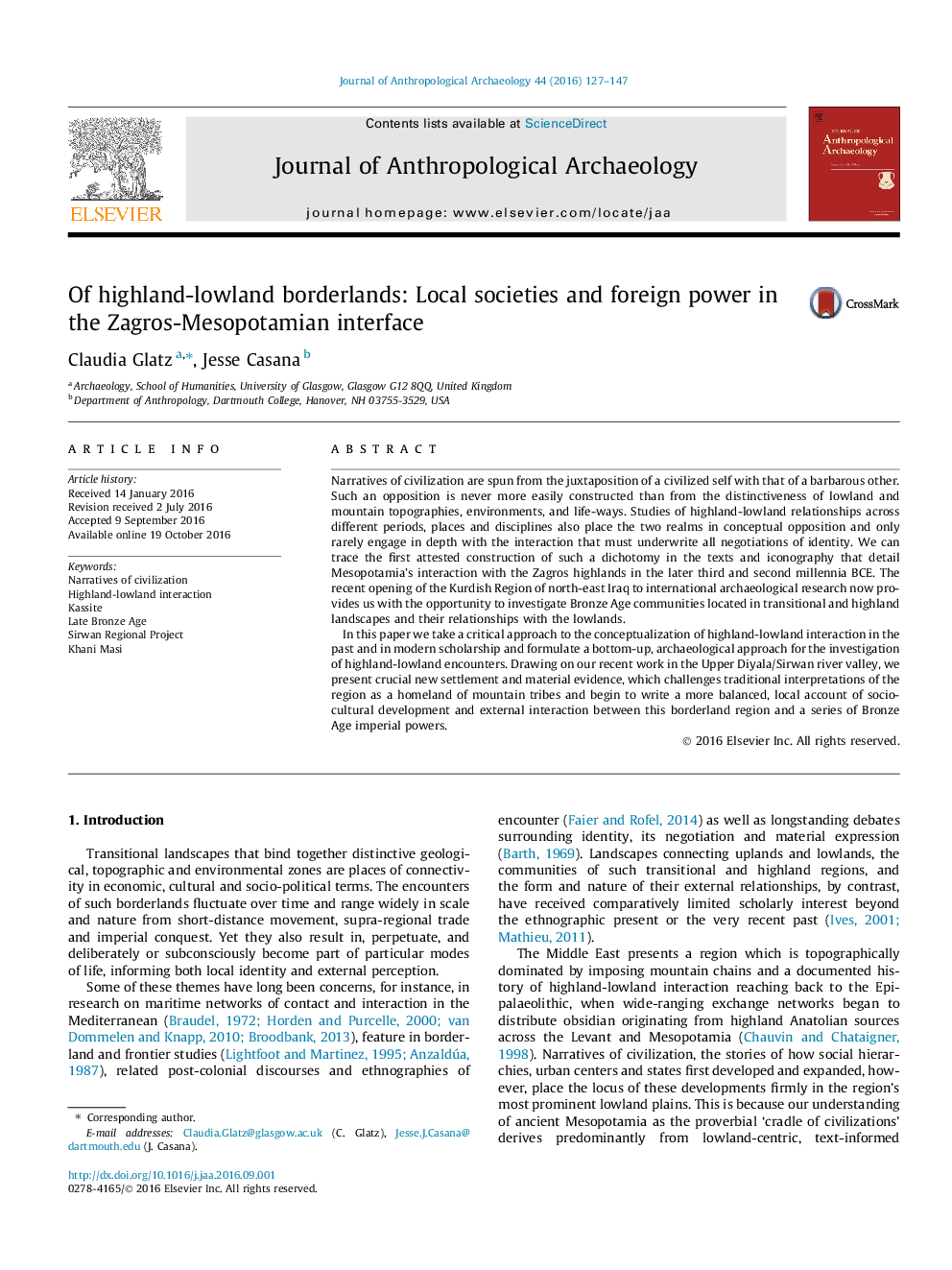| Article ID | Journal | Published Year | Pages | File Type |
|---|---|---|---|---|
| 6481325 | Journal of Anthropological Archaeology | 2016 | 21 Pages |
â¢In this paper, we deconstruct traditional narratives of civilization.â¢We do so through the lens of highland-lowland relationships.â¢We outline an archaeological approach to the relationships underwriting identity negotiation.â¢We present new archaeological work by the Sirwan Regional Project.
Narratives of civilization are spun from the juxtaposition of a civilized self with that of a barbarous other. Such an opposition is never more easily constructed than from the distinctiveness of lowland and mountain topographies, environments, and life-ways. Studies of highland-lowland relationships across different periods, places and disciplines also place the two realms in conceptual opposition and only rarely engage in depth with the interaction that must underwrite all negotiations of identity. We can trace the first attested construction of such a dichotomy in the texts and iconography that detail Mesopotamia's interaction with the Zagros highlands in the later third and second millennia BCE. The recent opening of the Kurdish Region of north-east Iraq to international archaeological research now provides us with the opportunity to investigate Bronze Age communities located in transitional and highland landscapes and their relationships with the lowlands.In this paper we take a critical approach to the conceptualization of highland-lowland interaction in the past and in modern scholarship and formulate a bottom-up, archaeological approach for the investigation of highland-lowland encounters. Drawing on our recent work in the Upper Diyala/Sirwan river valley, we present crucial new settlement and material evidence, which challenges traditional interpretations of the region as a homeland of mountain tribes and begin to write a more balanced, local account of socio-cultural development and external interaction between this borderland region and a series of Bronze Age imperial powers.
